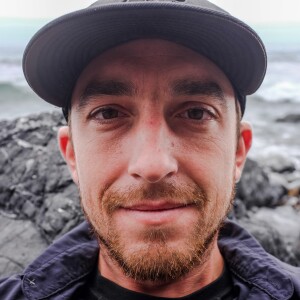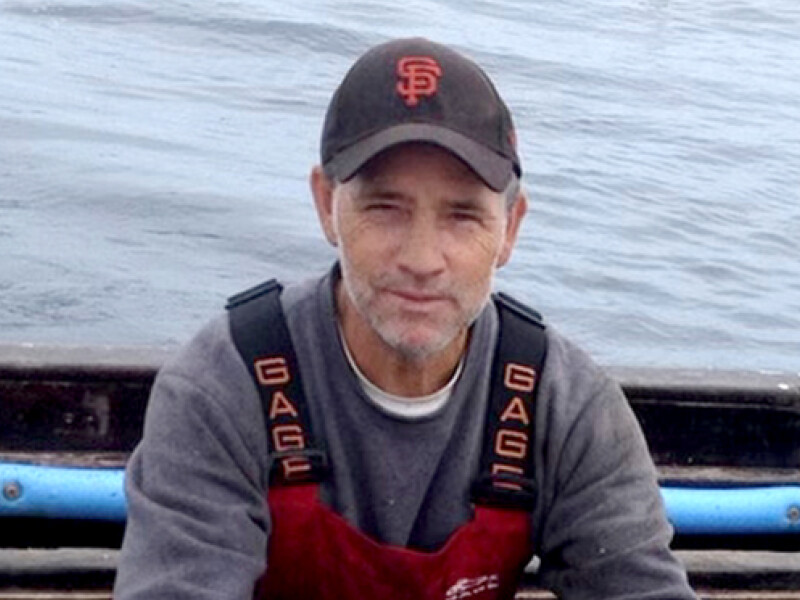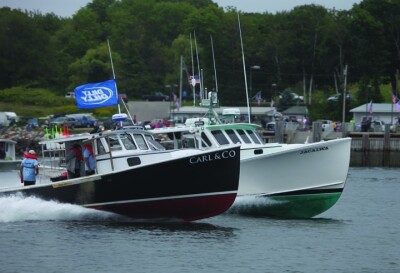Just when you think you know someone in the commercial fishing industry, they’ll floor you with a backstory that seems straight out of a Hollywood movie. For Benjamin Platt, 59, Crescent City-based commercial fisherman and president of the California Coast Crab Association, this backstory actually includes Hollywood.
A climate-related spike in reported whale entanglements in Dungeness crab gear put California crabbers in the crosshairs of governmental regulators and environmental organizations in 2015. Since that time, Platt has taken a lead role in pushing back against draconian demands of litigious NGOs while also getting fishermen and women to change their practices on the water to mitigate potential effects on migrating whales. He has also been an outspoken voice, giving interviews and penning opinion pieces that have been published in a variety of media outlets, including the San Francisco Chronicle.
Through this advocacy, Platt has become one of the most recognizable names in West Coast fisheries. But few know he’s also an accomplished artist and musician who worked in Hollywood set design as a painter and was the bassist for the Bottom Feeders, a notable band in the 1990s Los Angeles punk rock scene. But the excesses of the rock n’ roll lifestyle left him homeless on the streets of LA with a drug and alcohol addiction. A near-fatal stab wound in 1997 left him temporarily disabled, but also put him on the path to recovery and a second chance at life.
“I’m often reluctant to publicly talk about the depths of my addiction and my time living on the streets,” Platt says. “But I got lucky. I got a second chance. We all know people struggling with addiction in this industry. So if even just one person sees there is hope from my story and gets the help they need, then it’s worth it.”
Newly sober, Platt was fishing out of a plastic kayak for live rock cod. Fast forward two decades, he now owns the 58-foot F/V Miss Heidi and has permits for Dungeness crab in California, Oregon and Washington; salmon in California and Oregon; pink shrimp in Oregon; and he fishes albacore tuna wherever the schools might take him.
Platt spent his early years in Claremont, Calif., where his father, Buzz Platt, coached water sports at the Claremont Colleges, even having some swimmers make Olympic teams, Platt says. His father was also a veteran of the Korean War, but in the politically divided times of the 1960s, he took the side of students protesting the Vietnam War and was fired in 1969. He moved his family north to Point Arena, where he took up sheep herding, carpentry, and other odd jobs before settling on commercial fishing the following year.
Platt began learning the trade salmon trolling with his father in 1971 when he was 9 years old. As he grew, he spent more time on boats and in different fisheries. When his senior year of high school came around, he stopped going to classes altogether to fish Dungeness crab on the California coast. He did end up graduating through continuation classes and was accepted to Humboldt State University where he studied art for four years, but kept fishing to support himself through college.
“I wanted to be a comic book artist, but instead I became a sign painter,” he says with a chuckle.
Platt started a sign painting business in Eureka in 1985. This was before digital design and high-quality screen printing took over, so business was good. But in 1988, at 26 years old, he aspired to be a rock star and moved to Los Angeles to pursue the dream.
He formed the Bottom Feeders with three others and took the stage name “Ben Halen.” The group got signed by a record label, cut albums, and took their irreverent punk rock on tour through the United States with Platt on the bass. But they remained underground and couldn’t live off their music alone.
After another stint sign painting, Platt landed a job as a scene and sketch artist in the film industry, working on mostly music videos and commercials. Over the years, he was an artist working on sets of some of the 1990s top musicians, including Michael Jackson, Lenny Kravitz, Rod Stewart and Paula Abdul, he says. He even traveled to Martha Stewart’s Connecticut home to install a mural of the Venus de Milo on the bottom of her pool. He also worked on the sets of commercials that appeared during the Super Bowl.
There was a dark side to the glamor of being a punk rocker in Hollywood. After years of maintaining work even with his excesses, his drinking and drug use got out of control. He would find himself out of work, and soon after out of the band in 1997. For nearly a year he lived on the streets of LA, in and out of jail, always looking for the next high. But one night a fight broke out in the alley where he was living, and Platt was stabbed through his back left shoulder and left arm, severing a main artery, he says. Typically, no one called 911 in those situations, with most wanting to avoid police at all costs.
“I thought I was going to die. I thought I was going to bleed out right there,” he says. But someone on the street made the emergency call and stuck around. Paramedics were able to get him to the hospital for live saving-treatment.
When he was healthy enough to be discharged, Platt was checked into a drug rehabilitation center in Mendocino County near his family.
“LA just about killed me. I had to get the hell out of there,” he says. The stabbing also caused nerve damage, rendering him unable to play bass. But as he recovered from his wounds and addiction, he was able to get day passes to leave rehab and go fishing with his dad. He still had limited use of his left hand, but the fine motor skills needed to bait hooks and run fishing gear acted as physical therapy and allowed him to slowly regain his strength and dexterity.
“Fishing really helped me,” he says.
Shortly after Platt was released from rehab, his father got sick and died suddenly in 1998. He was able to avoid falling back to drugs and alcohol through this time of grief. He took over his father’s 16-foot aluminum skiff to fish live rock cod out of Fort Bragg, but that sank after it took on water getting too close to a reef in a large winter swell. So, he started commercial fishing out of a kayak for almost a year before upgrading to a Boston Whaler. In 1999, he upgraded to a fiberglass salmon troller and started entering new fisheries.
For the next decade he would fish hard, save, and invest his income into larger boats and fishing permits, expanding his business. He purchased the F/V Sea Star, a 47-foot wood boat, in 2010. Then he bought the 50-foot Seeadler in 2018 but continued to fish the Sea Star until the new boat came out of the Fashion Blacksmith boatyard at 58 feet long and 24 feet in beam in the fall of 2019, renamed the Miss Heidi. It’s the last boat he’ll own, he says.
Through the years of building his operation, he also moved around the California coast, from Fort Bragg to Half Moon Bay in 2011, then to Bodega Bay in 2015, having bought a house inland near Santa Rosa. When the Miss Heidi was launched, Platt and his wife, Heidi, made another move to Crescent City, where they are now based.
And while he bounced around fishing ports, he still maintained a growing presence in fisheries politics. When his father passed, Buzz Platt was the president of the Salmon Trollers Marketing Association of Fort Bragg and was its representative at Pacific Coast Federation of Fishermen’s Associations. He was also a member of the Pacific Fishery Management Council groundfish advisory panel. Ben Platt said it was through his father that he learned the value of being engaged in fisheries management and advocating for the interests of fishermen.
In 2006, Platt first took a leadership role, acting as the spokesman for the Salmon Trollers Marketing Association of Fort Bragg in a lawsuit they attempted to bring against the federal government for diverting Klamath River water to farmers and ranchers, resulting in mass salmon die-offs. Those die-offs resulted in a complete closure for one season and heavy restriction for two, he says. From that time, he became active with PCFFA, staying involved in a variety of West Coast fisheries.
When the Dungeness crab fishery started making headlines for whale entanglement, Platt became one of the most outspoken defenders of California crabbers, and was critical of the legal settlement agreed to by the Center for Biological Diversity, California Fish and Wildlife, and PCFFA. Seeing the need for an organization run by crabbers and for crabbers, Platt was among a group of fishermen who launched the California Coast Crab Association in 2019 to advocate full time for the fishery. In his current leadership role, Platt has led the charge to inform the public that crabbers do not pose a threat to recovering whale populations. He also helped launch a coastwide lost-gear clean-up at the end of the fishing season.
“If we can’t save Dungeness crab, the whole of our fisheries won’t survive,” he says, referring to the economic clout Dungeness crab has in northern California. Platt witnessed the fall of timber and groundfish and saw how the industrial loss led to economic decay and social plight in small coastal communities. “I can’t bear to see that again,” he says.
While he’s pushing 60, Platt doesn’t see himself slowing down anytime soon, there’s still many fish to catch, battles to be fought, and bridges to be built.







